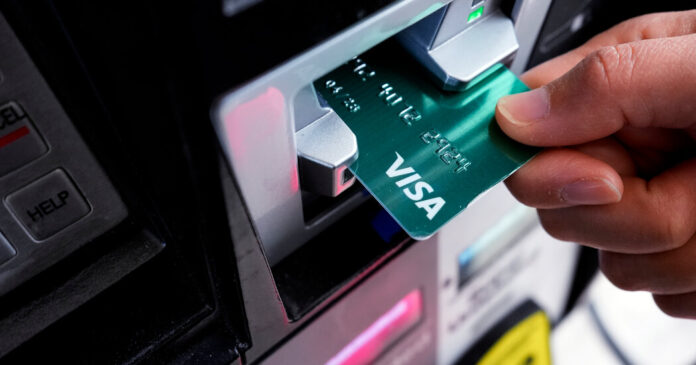Millions of Americans could soon see lower credit card bills after the Consumer Financial Protection Bureau approved a federal rule on Tuesday that caps late fees at $8 a month. The change is estimated to save households $10 billion per year.
According to the bureau, late fees have become a major source of revenue for credit card issuers, generating more than $14 billion in 2022. A rule issued by the Federal Reserve in 2010 aimed to cap fees but allowed adjustments for inflation – a provision that card issuers have used to raise their fees well above the actual costs incurred by late payments, it said the office.
This allowed credit card companies to “collect billions of dollars in junk fees from American consumers,” said Rohit Chopra, the bureau’s director. “Today’s ruling ends the era of large credit card companies hiding behind the excuse of inflation as they raise fees for borrowers and boost their own profits.”
The new restriction limits issuers to an $8 fee unless they can demonstrate that they need to charge more to cover their actual collection costs. It only applies to large issuers with more than a million open accounts, but the agency estimates the rule covers 95 percent of outstanding credit card balances.
The rule is expected to be published in the Federal Register shortly and will take effect 60 days later.
Banking groups vehemently oppose the rule and will likely file a lawsuit to block it.
Ian Katz, managing director of research firm Capital Alpha Partners, predicted the lawsuit would be filed “in a sympathetic district where the industry would likely delay implementation of the rule while the case is considered.”
The Bank Policy Institute, a trade group, said the consumer agency's justification for the rule did not meet the “reasoned analysis and evidence” required by the Administrative Procedure Act, which governs the agency's rulemaking.
“Given the regulation's numerous flaws and inadequacies, its fate will likely be determined in federal court,” said Greg Baer, the trade group's chief executive. “All consumers who pay on time will now pay more, and low- and middle-income borrowers, who are higher risk, will lose some access to credit.”
Lindsey Johnson, chief executive of the Consumer Bankers Association, another trade group, pointed to a bureau analysis that acknowledged card issuers “could adjust other fees or interest rates to make up for lost revenue” as an indication that the rule will have a negative impact could have an impact on cardholders.
She added: “By normalizing late credit card payments, the government is knowingly putting consumers’ financial health at risk.”
Consumer advocates welcomed the change. The consumer agency “proved its math” by outlining how it calculated the $8 fee limit, said Lauren Saunders, deputy director of the National Consumer Law Center. “This is how good, data-driven regulation works.”
The final rule comes a little more than a year after the consumer bureau distributed a draft for public comment. The final version follows the earlier proposal quite closely.
President Biden is likely to highlight the new rule in his State of the Union address on Thursday. His administration has made an interagency crackdown on so-called “junk fees” an initiative.
Mr. Chopra's agency has eagerly embraced this campaign, targeting fees it believes are excessive through a series of enforcement actions and proposals for new restrictions. In January, the agency began the formal process of adopting a new rule that would reduce overdraft fees to $14 or less from the current $35.















